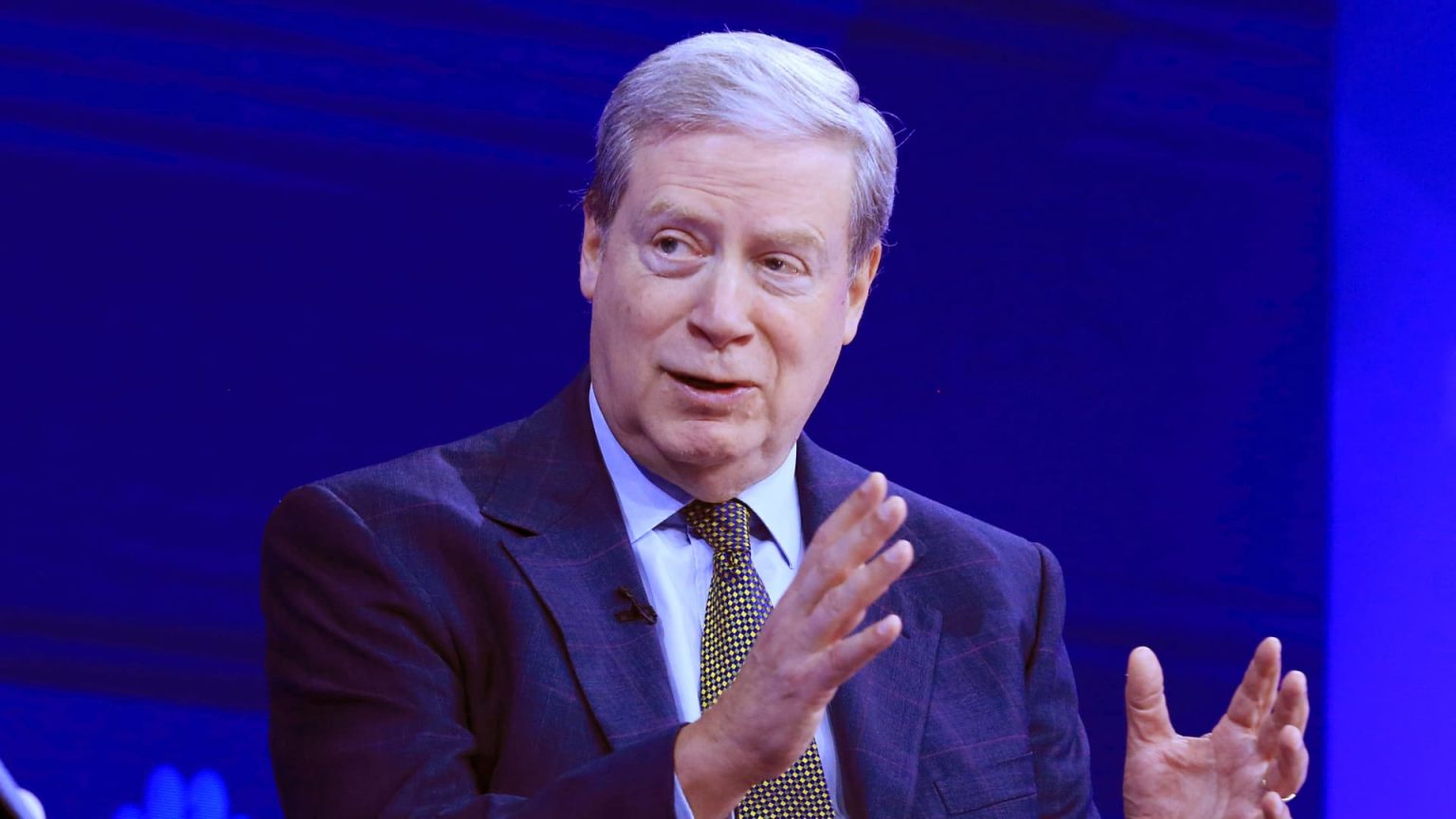Billionaire investor Stanley Druckenmiller has reiterated his long-standing opposition to tariffs exceeding 10% in a recent post on social media platform X. The founder of Duquesne Family Office asserts that tariffs above this threshold can significantly harm the economy and consumer prices. His comments come amidst rising tensions surrounding the Trump administration’s tariff policies, which have seen some rates soar to as high as 50% on various imports. With financial markets reacting negatively to these developments, Druckenmiller’s remarks underscore the ongoing debate about the implications of such economic measures.
| Article Subheadings |
|---|
| 1) Background on Stanley Druckenmiller’s Investment Philosophy |
| 2) Overview of Tariff Impacts on the Economy |
| 3) The Reaction to Trump’s Tariff Policies |
| 4) Political Implications for Upcoming Elections |
| 5) Future Outlook on Tariffs and Market Reactions |
Background on Stanley Druckenmiller’s Investment Philosophy
As a prominent figure in the world of finance, Stanley Druckenmiller is known for his successful investment strategies and significant influence in economic discussions. He founded the Duquesne Family Office after a notable career, including a partnership with George Soros in the famed Quantum Fund. Druckenmiller’s investment philosophy emphasizes a long-term approach, characterized by thorough analyses of macroeconomic indicators and market sentiments. His insights often aim to gauge the impact of government fiscal policies, including taxation, on economic growth. He has continuously asserted that high tariffs are detrimental because they limit free trade and may ultimately elevate consumer prices.
Overview of Tariff Impacts on the Economy
Tariffs are taxes imposed on imported goods, and their primary aim is to protect domestic industries by making foreign products more expensive. Druckenmiller previously described tariffs exceeding 10% as “simply a consumption tax,” suggesting that their burden largely falls on consumers rather than foreign entities. His contention is that while tariffs in moderation can have neutral or oversimplified effects, exceeding the 10% mark introduces significant risks. Various studies have shown that high tariffs lead to higher consumer prices and can even instigate trade retaliation from other countries, exacerbating international disputes. In essence, Druckenmiller urges for a balanced tariff strategy, wherein minimal rates could protect domestic industries without severely harming the broader economy.
The Reaction to Trump’s Tariff Policies
The response to the tariff proposals put forth by the Trump administration has been mixed, with heavy criticism from various economic commentators, including Druckenmiller. The administration’s baseline 10% tariff began to take effect on a multitude of goods, with some rates surging as high as 50%. Following these announcements, market reactions included significant drops in stock prices, reflecting investor concerns over the potential fallout of such policies. Critics have pointed out that the imposition of high tariffs can lead to increased costs for businesses and consumers alike, destabilizing the market. Conversely, supporters of the tariffs, including some of Trump’s allies, argue that they are necessary for protecting American jobs and industries from unfair foreign competition.
Political Implications for Upcoming Elections
With the U.S. presidential elections on the horizon, economic policy, particularly regarding tariffs, will undoubtedly play a critical role in candidates’ platforms. Druckenmiller notably expressed his limited support for candidates who endorse heavy tariffs, emphasizing his backing for alternatives like Nikki Haley. Meanwhile, Donald Trump continues to advocate for his stringent tariffs, urging supporters to “hang tough.” The stark divide in tariff support reflects broader economic philosophies that could influence voter perceptions. If high tariffs lead to economic slowdowns, they could adversely impact Trump’s standing among voters who feel the pinch of rising prices. This economic discourse thus ties directly into the political narrative heading into a pivotal election cycle.
Future Outlook on Tariffs and Market Reactions
The future trajectory of tariffs, particularly in light of Druckenmiller‘s advocacy for maintaining lower rates, remains uncertain. Economists and market analysts continue to monitor the implications of current tariff policies on inflation, consumer behavior, and overall economic growth. Should the push for higher tariffs persist, economists warn of an impending economic slowdown reminiscent of past recessions triggered by protectionist measures. The necessity for dialogue between policymakers and business leaders becomes evident as the consequences of these policies reverberate through the economy, potentially reshaping U.S. trade relations in the years to come. Investors will be keenly observing market trends as they correlate with policy changes, particularly following the upcoming elections.
| No. | Key Points |
|---|---|
| 1 | Billionaire investor Stanley Druckenmiller has continually opposed tariffs exceeding 10%. |
| 2 | Tariffs above 10% can escalate consumer prices and harm the economy. |
| 3 | The Trump administration’s tariffs have received mixed reactions, affecting stock prices significantly. |
| 4 | Politically, tariffs could impact voter sentiment as the elections approach. |
| 5 | Market analysts continue to observe the long-term effects of current and potential tariff policies. |
Summary
The ongoing discourse surrounding tariffs—particularly those exceeding the 10% threshold—demonstrates a significant divide among economic leaders and politicians. Stanley Druckenmiller has consistently highlighted the risks associated with high tariffs and their potential to create economic instability. As upcoming elections loom, candidates must address the complexities of trade policies while balancing domestic priorities and international relations. The influence of these discussions on market reactions illustrates the critical relationship between economic policy and investor confidence, setting the stage for a dynamic political and economic landscape.
Frequently Asked Questions
Question: What are tariffs?
Tariffs are taxes levied on imported goods, designed to protect domestic industries by making foreign products more costly.
Question: Why does Druckenmiller oppose tariffs over 10%?
Druckenmiller believes tariffs over this figure can significantly harm the economy and raise consumer prices, acting as a consumption tax primarily paid by consumers.
Question: How could tariffs affect the upcoming elections?
Tariffs could influence voter sentiment regarding candidates’ economic policies, particularly if higher rates lead to increased consumer prices and economic instability.


